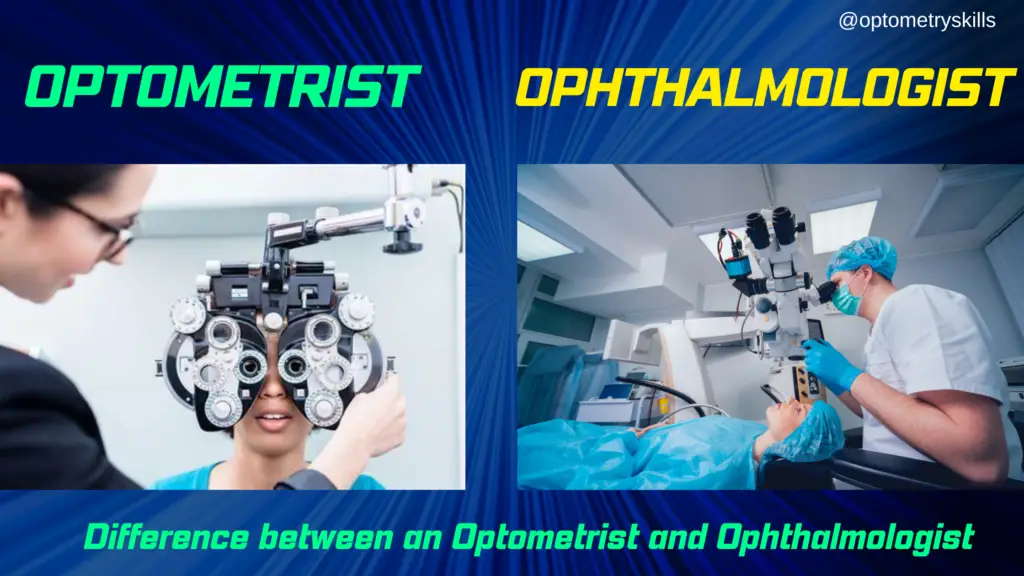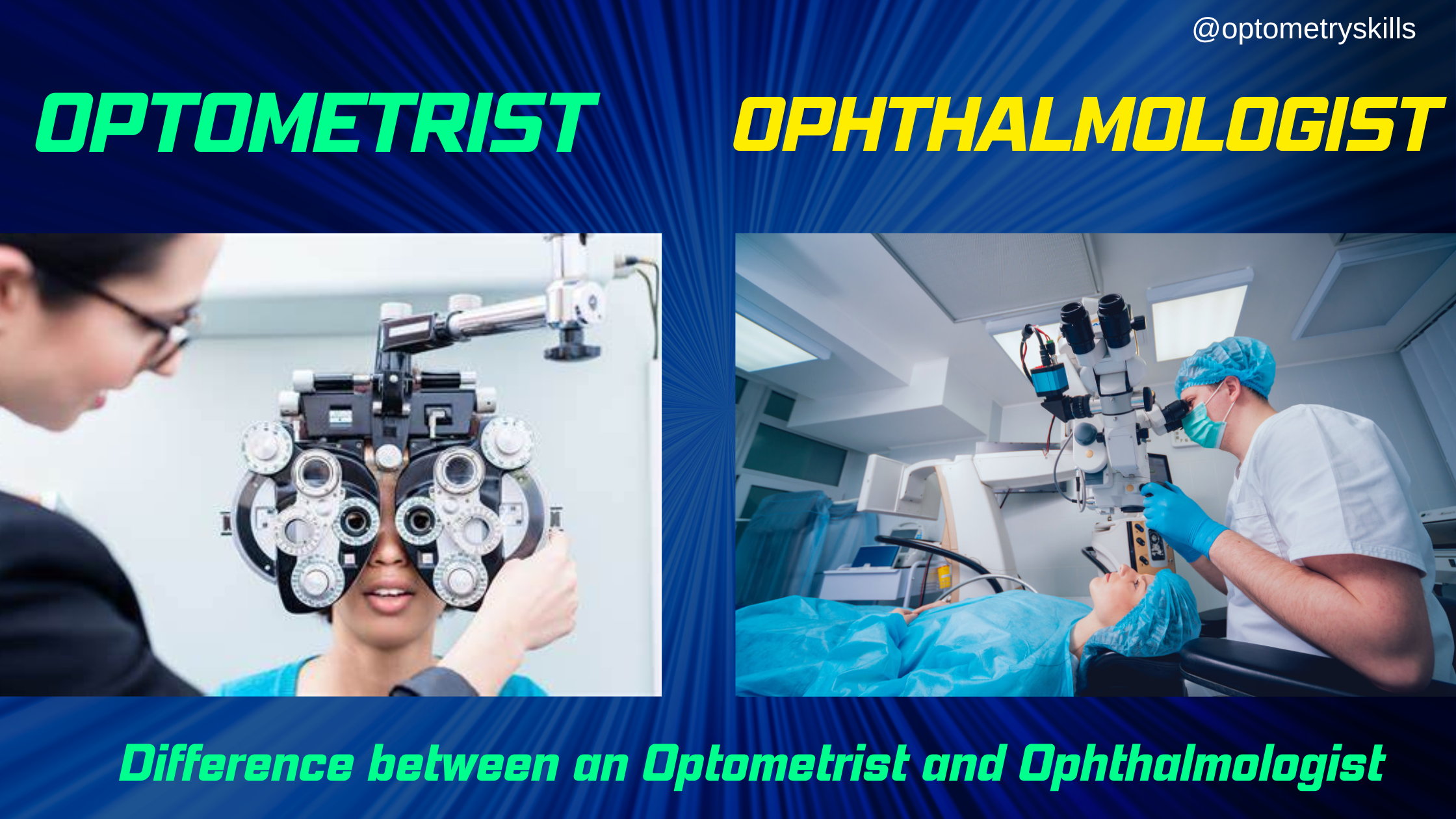10 Difference between an Optometrist and Ophthalmologist
Many people get confused about an Optometrist and Ophthalmologist. Optometrist is a relatively new field which was created to bridge the gap between increasing eye related problem and shortage of professional who can treat and manage eye related cases. An optometrist and an ophthalmologist are both eye care professionals, but they differ in their education, training, and the scope of care they provide.

An optometrist is a primary eye care provider who specializes in performing eye exams, prescribing and fitting eyeglasses and contact lenses, and diagnosing and treating common eye conditions such as nearsightedness, farsightedness, and astigmatism. They also can diagnose and manage certain eye diseases like glaucoma, dry eye, and conjunctivitis, but typically refer patients to an ophthalmologist for more complex issues.
On the other hand, an ophthalmologist is a medical doctor who specializes in the diagnosis and treatment of eye diseases and disorders. They have completed medical school and a residency in ophthalmology, which includes extensive training in the medical and surgical management of eye conditions. Ophthalmologists have the ability to perform eye surgeries, such as cataract surgery, LASIK, and other procedures that require advanced training.
Here are 10 Differences between an Optometrist and Ophthalmologist

- Education and Training: Ophthalmologists are medical doctors who have completed four years of medical school and an additional four years of residency in ophthalmology. Optometrists, on the other hand, complete a four-year degree program in optometry.
- Licensing: Ophthalmologists are licensed to perform surgery, prescribe medication, and diagnose and treat a wide range of eye diseases. Optometrists are licensed to diagnose and treat some eye conditions, prescribe corrective lenses, and refer patients to ophthalmologists for specialized care.
- Scope of Practice: Ophthalmologists provide a full range of eye care services, including surgery, while optometrists focus primarily on vision care and prescribing corrective lenses.
- Diagnosing and Treating Eye Conditions: Ophthalmologists are trained to diagnose and treat more complex eye conditions, such as glaucoma, cataracts, and macular degeneration. Optometrists are trained to diagnose and treat some eye conditions, but their scope is more limited.
- Surgery: Ophthalmologists are licensed to perform surgery, while optometrists are not.
- Prescribing Medication: Ophthalmologists are licensed to prescribe medication, while optometrists can only prescribe certain types of medication for specific eye conditions.
- Vision Exams: Optometrists are trained to perform vision exams and prescribe corrective lenses, while ophthalmologists may also perform vision exams but focus more on diagnosing and treating eye conditions.
- Eye Diseases: Ophthalmologists are trained to diagnose and treat a wide range of eye diseases, while optometrists primarily focus on diagnosing and treating common eye conditions.
- Referrals: Optometrists may refer patients to ophthalmologists for specialized care concerning eye diseases and surgery , while ophthalmologists may refer patients to Optometrist for vision exercises.
- Cataract Care: Ophthalmologist do Cataract eye surgery while Optometrist help in pre-op and post- Op care of Cataract surgery
Follow us via Facebook to read more Interesting eye articles
Discover more from An Eye Care Blog
Subscribe to get the latest posts sent to your email.


You must be logged in to post a comment.